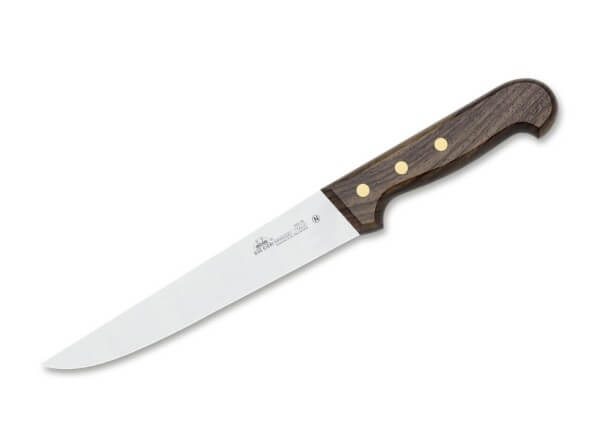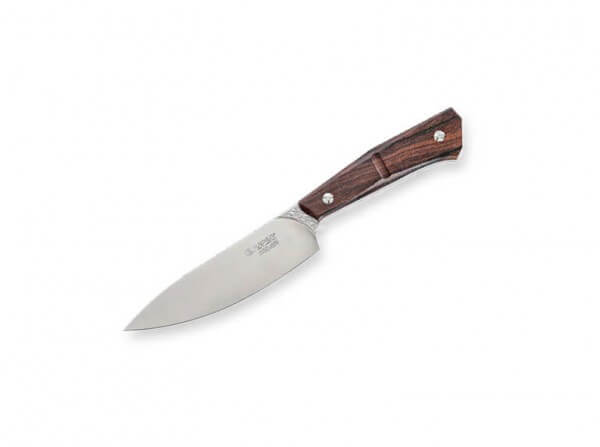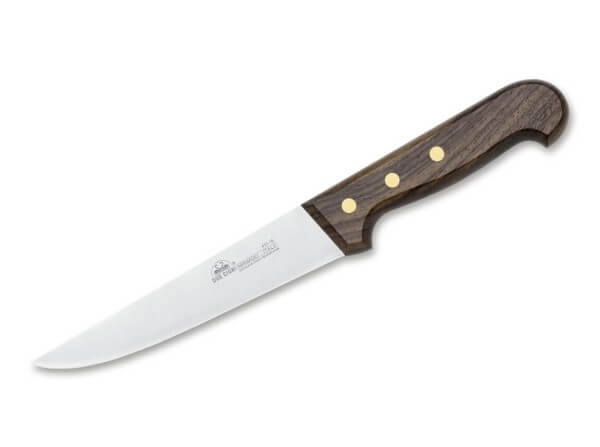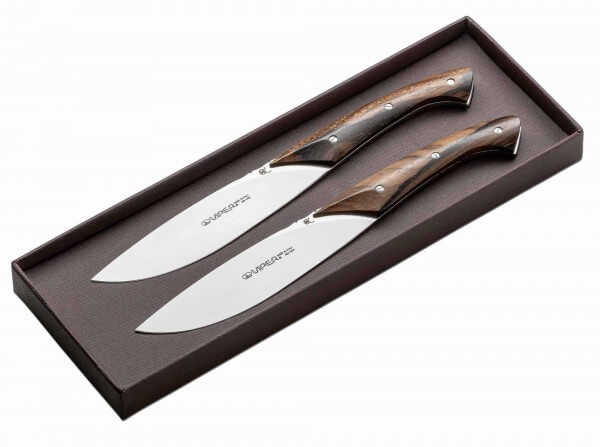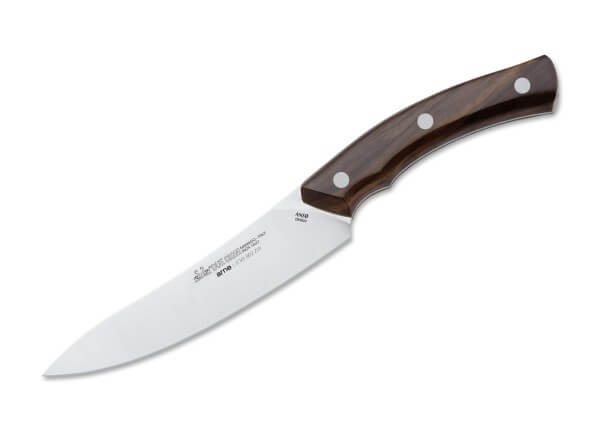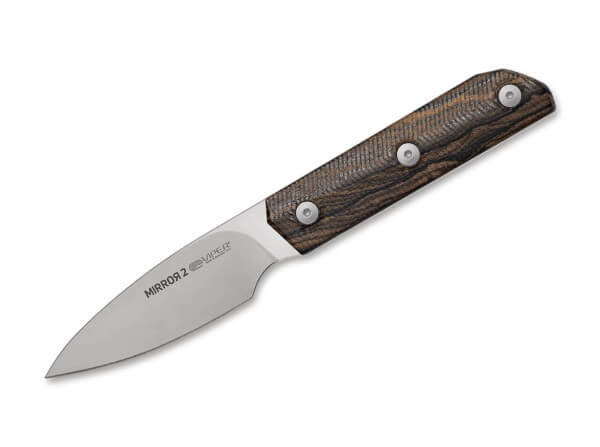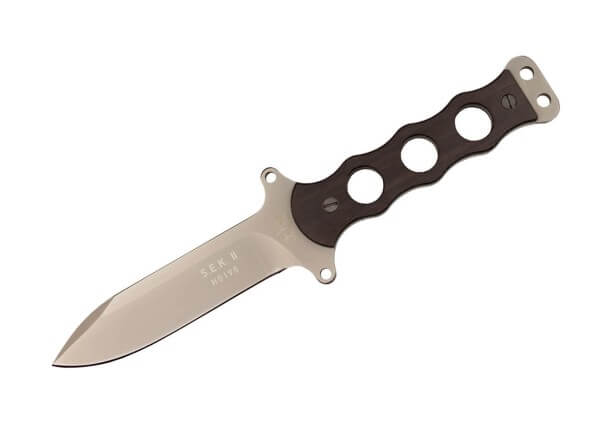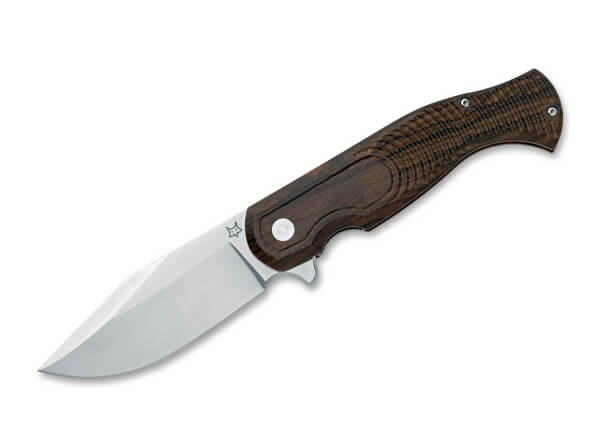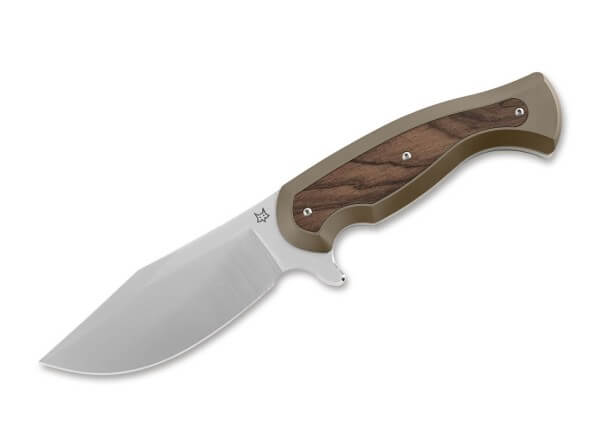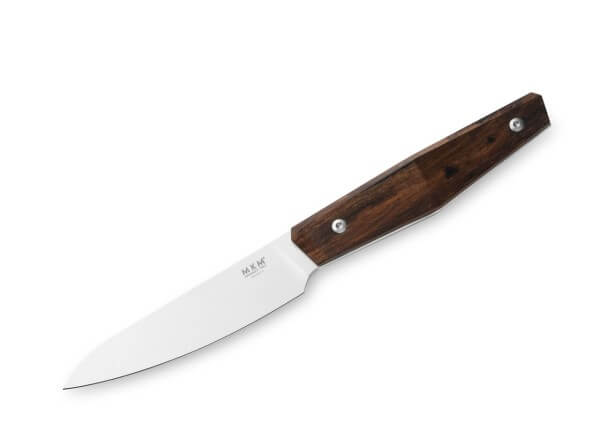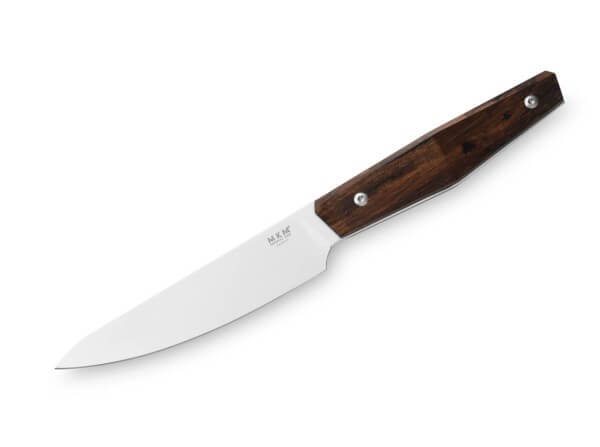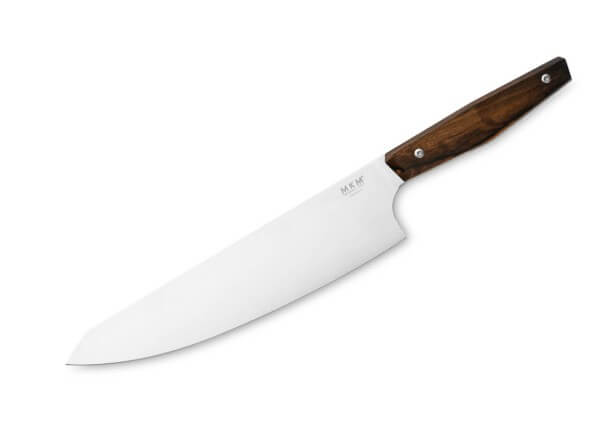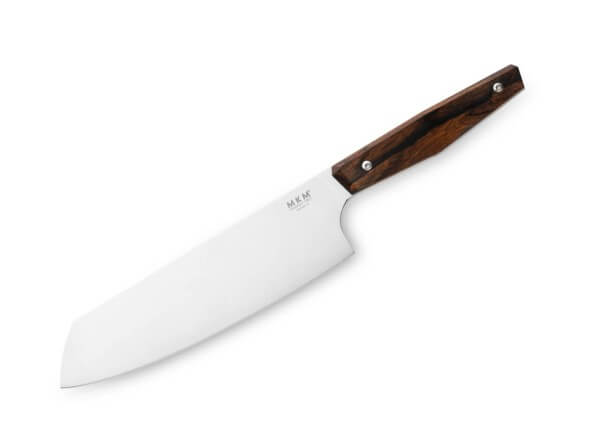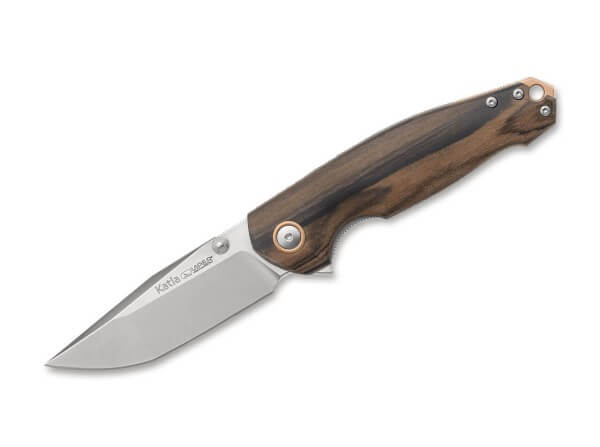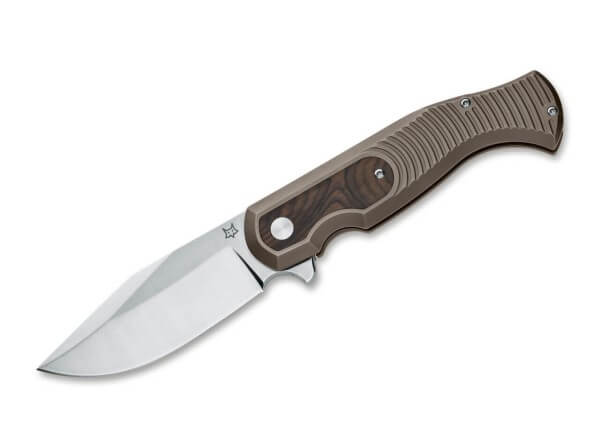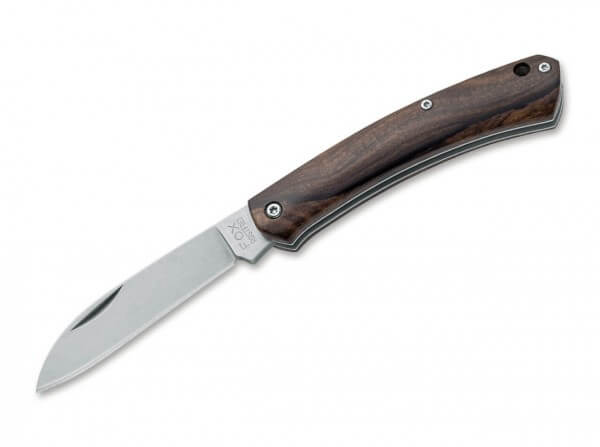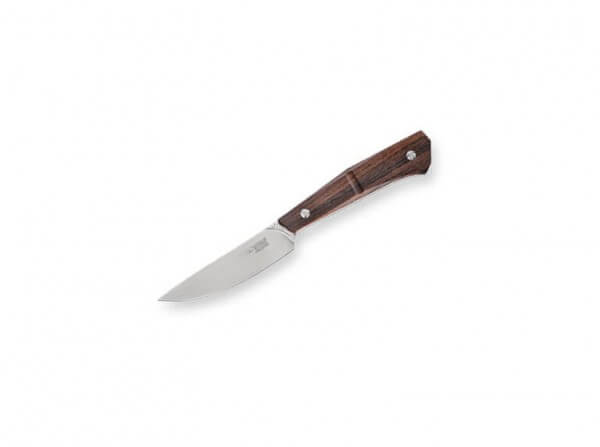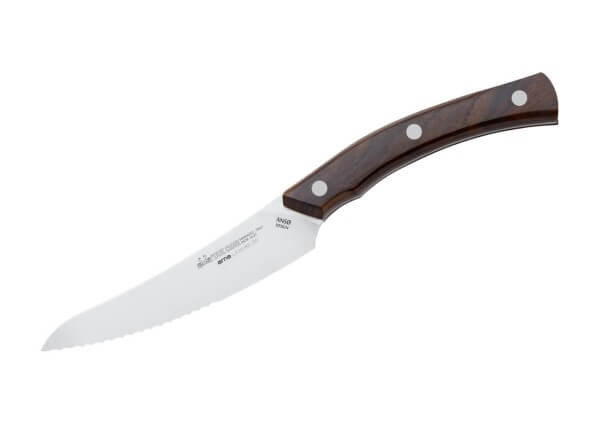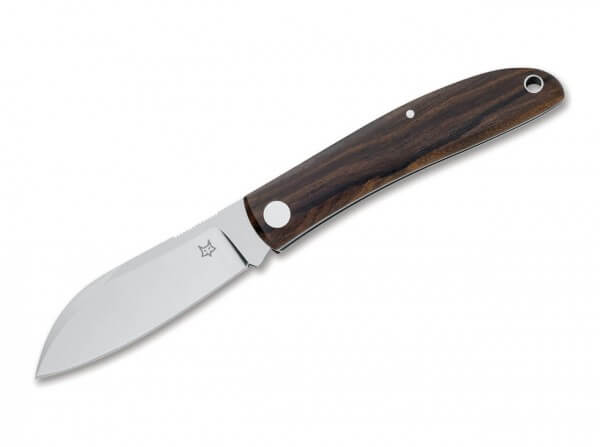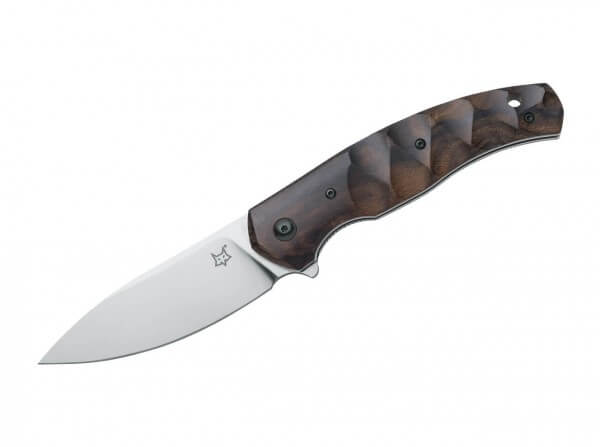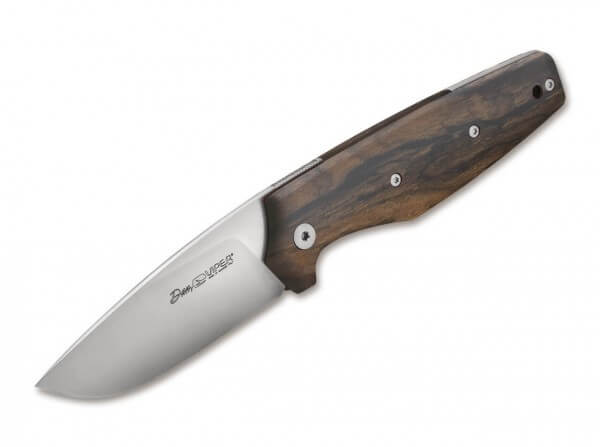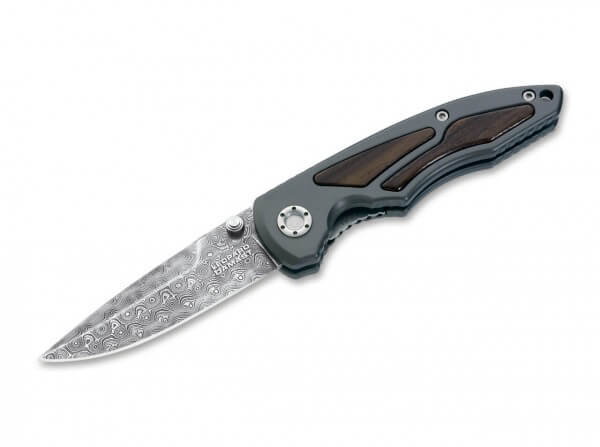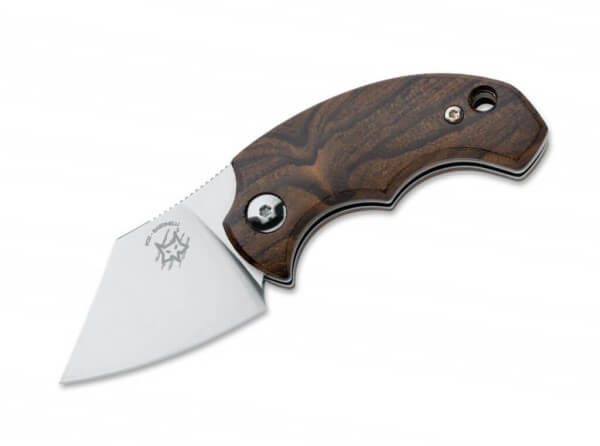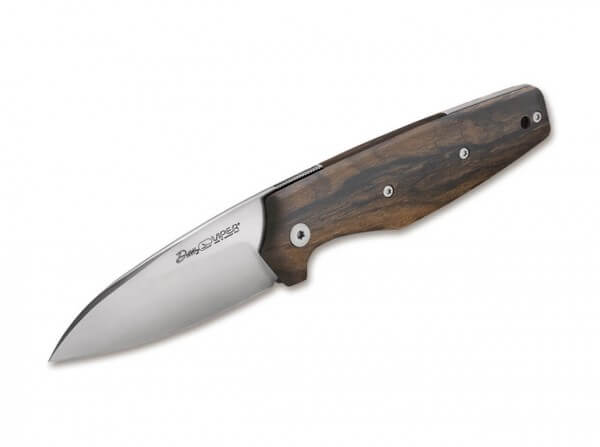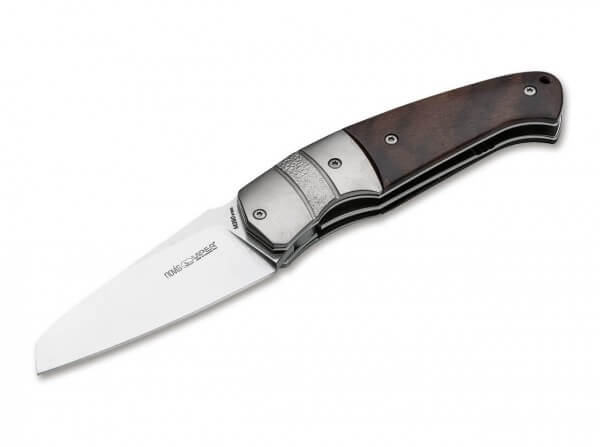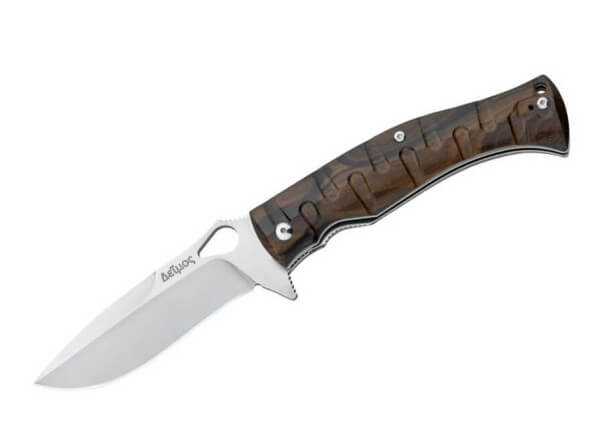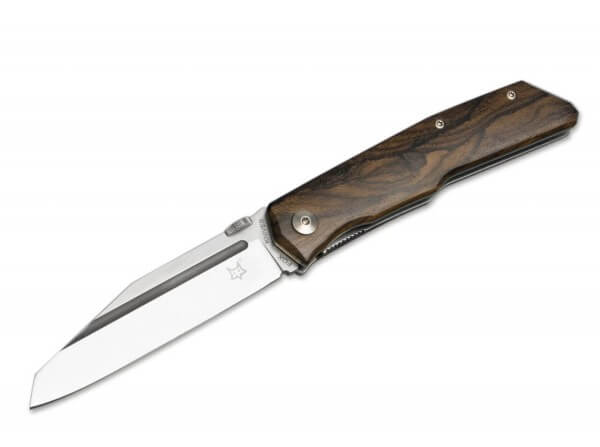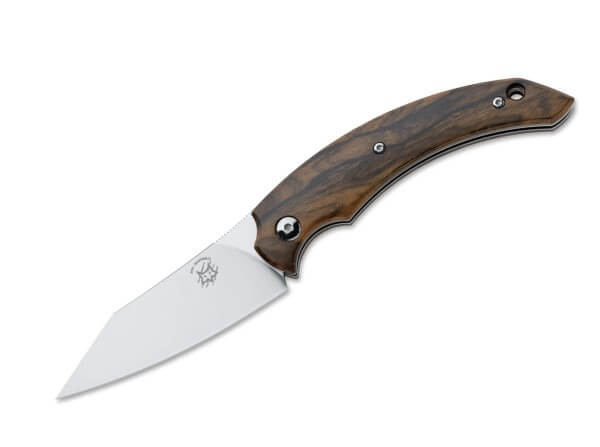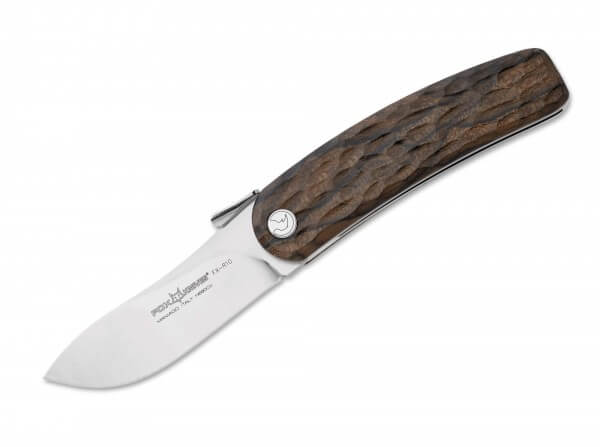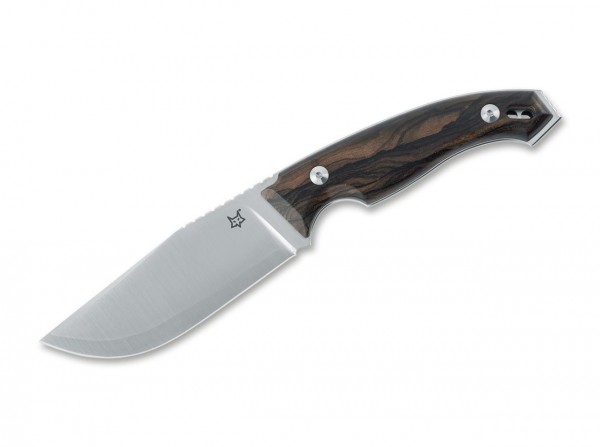Ziricote Wood
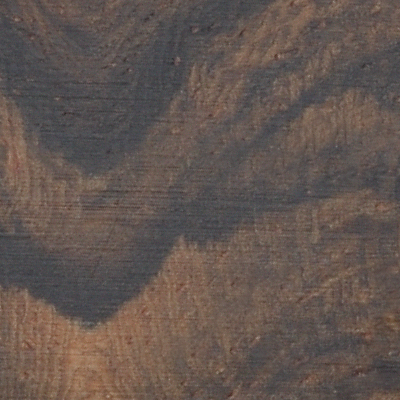
Ziricote (alternative spelling: Siricote) is the common name for Cordia dodecandra, a type of fine wood often used to make exclusive handle scales for knives.
Ziricote is a member of the Cordia family, named for the German physician and botanist Euricius Cordus (1486-1535) . The ziricote tree is indigenous to Central America and the Caribbean, especially southern Mexico and Cuba. Ziricote trees can grow up to 27 meters tall. The trunk of an adult tree can reach a radius of about 80 centimeters. Its growth is straight and branch-free which makes it very well suitable for many applications. Ziricote heartwood is particularly striking. It has a rich dark brown color laced with fine black veins.
The wood has small to medium-sized pores and a rather homogenous texture with mostly straight fibers, which can also develop a slight wave in some cases. The sapwood is much lighter than the heartwood and is not used to make handle scales. Ziricote wood is relatively heavy and extremely strong. Due to its tendency to develop cracks, the wood is difficult and slow to dry. In its dried state, however, it is very sturdy and break-resistant. Ziricote wood can be nicely polished to an exquisite silky sheen.
Soon after its discovery by Europeans in Central America, ziricote wood became a popular material for many applications, mainly elegant furniture, musical instruments rifle stocks and knife handles. Ziricote is very expensive. The high price point is not just due to its exotic origin but also reflects the effort needed to process the wood.


